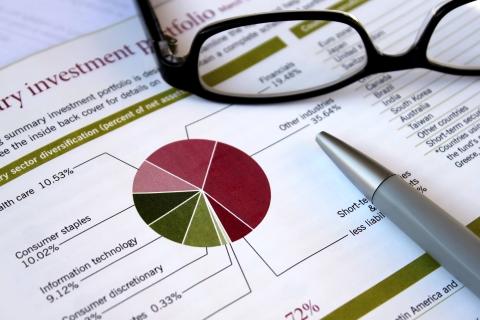It goes without saying that we are all trying to get used to a new reality. For those of us in the working world, it is a regular occurrence these days to have conference calls interrupted by children and dogs barking in the background. This is now more of an expectation than an annoyance.
As the coronavirus “COVID-19” makes its way around the globe, people are scrambling to wrap their arms around the latest epidemic and what it means.
Thus far, it has reached 109 countries and appears to be headed for more. The overwhelming majority of cases to date have taken place in China, the country of origin, and it remains to be seen how effective containment efforts will be elsewhere.
Headlines today are centered on the sharp market drop around the globe, which is being tied to the increase in reported Coronavirus (COVID-19) cases outside of mainland China. Over the weekend, South Korea, Japan, Iran and Italy all saw a surge in cases.
The current coronavirus breakout seems to be on everyone’s minds, and rightfully so. As the number of infected people continues to grow, so might some of our anxiety about the spread and potential impact of the virus. While we don’t know how many people the virus will infect and the length of this viral cycle, we do know that you may have some questions about how this might impact your investments.
Just like that, the 2018 tax changes that were supposed to be mostly permanent have been altered. In the following paragraphs, our associate financial planner, Justin Gabriel, breaks down the pertinent details of the new law that may be applicable in the years ahead.
Often as investors, we are forced to endure prolonged periods where it feels like our investments are stuck in neutral. These stretches of time can test our patience and resolve every bit as much as when markets are plummeting. The natural instinct is to believe that something must be broken, so we are tempted to shake things up a bit.
It was hard to miss the headlines about escalating trade tensions between the U.S. and China last week—and hard not to notice the up-and-down market activity that went along with it. But what, if any, long-term impact does trade policy have on the economy and, by extension, our portfolios?
As you arise this morning, you have likely seen that the global stock market fell very sharply yesterday. It was the worst day for markets since this past February. The selloff continued overnight in foreign markets, pushing them downward toward their 20-month lows.
I was originally drawn to a career in investments with the idea I could outsmart the market. After all, CNBC was a staple in my dorm room during my college years. It was exciting to analyze the stock tickers as they scrolled by. I thought of each stock as a different opportunity to attain wealth. I was convinced I could find the winners and avoid the losers. I had little concept of risk and no inkling the impact ignoring it could have on future wealth.
It is a common belief in modern society that money can’t buy happiness. Yet that does not seem to stop people from trying! People are consistently over-extending themselves, pushing their cash flow commitments to the limits as household debt levels continue to inch their way back up toward 2008 levels.
Despite this, it may surprise many of you that I actually disagree with that statement. However, I do believe that many people just emphasize the wrong kind of “happiness” in their pursuit.











